第36章 CHAPTER III(9)
Catinat reported Lalande's answer to his chief it was of a kind that he understood and liked, so leaving the rest of his troops at Massanes, he chose sixty men from his infantry, and eight horsemen as escort. On coming in sight of the bridge, he saw Lalande approaching from the other side. He at once ordered his sixty men to halt, went a few steps farther with his eight horsemen, and then ordered them in their turn to stop, and advanced alone towards the bridge. Lalande had acted in the same manner with regard to his dragoons and officers, and now dismounting, came towards Cavalier.
The two met in the middle of the bridge, and saluted with the courtesy of men who had learned to esteem each other on the field of battle. Then after a short silence, during which they examined each other, Lalande spoke.
"Sir," said he, "the king in his clemency desires to put an end to the war which is going on between his subjects, and which can only result in the ruin of his kingdom. As he knows that this war has been instigated and supported by the enemies of France, he hopes to meet no opposition to his wishes among those of his subjects who were momentarily led astray, but to whom he now offers pardon."
"Sir," answered Cavalier, "the war not having been begun by the Protestants, they are always ready for peace--but a real peace, without restriction or reserve. They have no right, I know, to lay down conditions, but I hope they will be permitted to discuss those which may be laid down for them. Speak openly, sir, and let me know what the offers are that you have been authorised to make to us, that I may judge if we can accept them."
"But how would it be," said Lalande, "if you were mistaken, and if the king desired to know what conditions you would consider reasonable?"
"If that is so," answered Cavalier, "I will tell you our conditions at once, in order not to prolong the negotiations; for every minute's delay, as you know, costs someone his life or fortune."
"Then tell me what your conditions are," returned Lalande.
"Well," said Cavalier, "our demands are three first, liberty of conscience; secondly, the release of all prisoners who have been condemned to imprisonment or the galleys because of their religion; and thirdly, that if we are not granted liberty of conscience we may be at least permitted to leave the kingdom."
"As far as I can judge," replied Lalande, "I do not believe that the king will accept the first proposition, but it is possible that he may accede to the third. In that case, how many Protestants would you take with you?"
"Ten thousand of all ages and both sexes."
"The number is excessive, sir. I believe that His Majesty is not disposed to go beyond three thousand."
"Then," replied Cavalier, "there is nothing more to be said, for I could not accept passports for any smaller number, and I could accept for the ten thousand only on condition that the king would grant us three months in which to dispose of our possessions and withdraw from the country without being molested. Should His Majesty, however, not be pleased to allow us to leave the kingdom, then we beg that our edicts be re-enacted and our privileges restored, whereupon we shall become once more, what we were formerly, His Majesty's loyal and obedient servants."
"Sir," said Lalande, "I shall lay your conditions before M. le marechal, and if no satisfactory conclusion can be arrived at, it will be to me a matter of profound regret. And now, sir, will you permit me to inspect more closely the gallant men with whose help you have done such astounding deeds?" Cavalier smiled; for these "gallant men" when caught had been broken on the wheel, burnt at the stake, or hanged like brigands. His sole answer was an inclination of the head as he turned and led the way to his little escort. M. de Lalande followed him with perfect confidence, and, passing by the eight horsemen who were grouped on the road, he walked up to the infantry, and taking out of his pocket a handful of gold, he scattered it before them, saying:
"There, my men! that is to drink the king's health with."
Not a man stooped to pick the money up, and one of them said, shaking his head "It is not money we want, but liberty of conscience."
"My men," answered Lalande, "it is unfortunately not in my power to grant your demand, but I advise you to submit to the king's will,and trust in his clemency."
"Sir," answered Cavalier, "we are all ready to obey him, provided that he graciously grant us our just demands; if not, we shall die weapon in hand, rather than expose ourselves once more to such outrages as have already been inflicted on us."
"Your demands shall be transmitted word for word to M. de Villars, who will lay them before the king," said Lalande, "and you may be sure, sir, that my most sincere wish is that His Majesty may not find them exorbitant."
With these words, M. de Lalande saluted Cavalier, and turned to rejoin his escort; but Cavalier, wishing to return confidence with confidence, crossed the bridge with him, and accompanied the general to where his soldiers had halted. There, with another salute, the two chiefs parted, M. de Lalande taking the road to Uzes, while Cavalier rejoined his comrades.